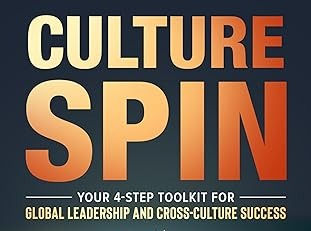Discover Diversity at Home: How Local Cultural Events Enrich Your Life
- Cross-Culture Connections
- Dec 26, 2024
- 3 min read
When we think about cultural exploration, our minds often drift to far-off destinations—iconic landmarks, exotic cuisines, and unique traditions. However, cultural discovery doesn't always require a passport or a plane ticket. Local cultural events in your own hometown can be just as enriching, offering opportunities to engage with diverse traditions and perspectives that are often overlooked. Here’s how exploring local culture can transform your understanding of the world and why it’s a cornerstone of building cultural intelligence.
The Hidden Gem of Local Culture
Your hometown, no matter how big or small, is likely a melting pot of traditions and stories. From food festivals celebrating global cuisines to performances of traditional music and dance, these events are often a microcosm of the world. Attending them can reveal new facets of cultures you may not have explored before.
By participating in local cultural events, you:
Support Community Diversity: Many events are organized by cultural associations or immigrant communities. Your presence supports their efforts to preserve and share their heritage.
Build New Connections: Events often bring together people from different walks of life, providing a unique opportunity to form meaningful relationships and exchange ideas.
Learn Through Immersion: Whether it’s learning a few words in another language or trying a new dish, these experiences provide hands-on cultural insights.
Examples of Cultural Events to Explore
Local cultural events can take many forms. Here are a few examples of activities to look out for:
Festivals and Fairs: Many towns host annual festivals celebrating the heritage of specific communities, from Oktoberfests to Lunar New Year parades.
Workshops and Classes: Community centers and cultural organizations often host workshops on cooking, traditional crafts, or dance.
Museum Exhibits and Film Screenings: Check out local museums and theaters for exhibitions or films that highlight cultural stories.
Markets and Food Trucks: Farmers' markets and food festivals are an excellent way to explore global cuisines without leaving your neighborhood.
How Local Cultural Events Build Cultural Intelligence
Cultural intelligence, or CQ, is the ability to relate and work effectively across cultures. Engaging with local cultural events plays a critical role in developing this skill. Here’s how:
Familiarity with Diversity: Interacting with various cultural expressions enhances your ability to understand and appreciate differences.
Adaptive Communication: Participating in events helps you navigate cultural nuances, from greetings to etiquette.
Breaking Stereotypes: Experiencing culture firsthand challenges assumptions and fosters a deeper understanding.
Tips for Getting Started
If you’re ready to dive into the rich cultural opportunities in your area, here are a few tips to make the most of it:
Do Some Research: Look up local cultural organizations or event calendars for your city.
Come with an Open Mind: Be ready to step out of your comfort zone and try new experiences.
Engage and Ask Questions: Show genuine interest in the traditions and stories being shared.
Invite Friends or Family: Sharing these experiences can create lasting memories and open dialogues about cultural diversity.
At Cross-Culture Connections, We Believe Every Interaction Counts
Engaging with cultural events in your hometown is just the first step. At Cross-Culture Connections, we help you take these insights further by turning everyday experiences into powerful tools for personal and professional growth. Our Culture SPIN Method is designed to enhance your cultural intelligence and prepare you to thrive in global interactions.
Travel the World, Starting at Home
Local cultural events are more than just entertainment—they’re opportunities to expand your worldview, celebrate diversity, and foster meaningful connections.
The beauty of cultural exploration is that it starts right where you are. By embracing the rich traditions and stories around you, you take the first step toward becoming a true global citizen.





Comments